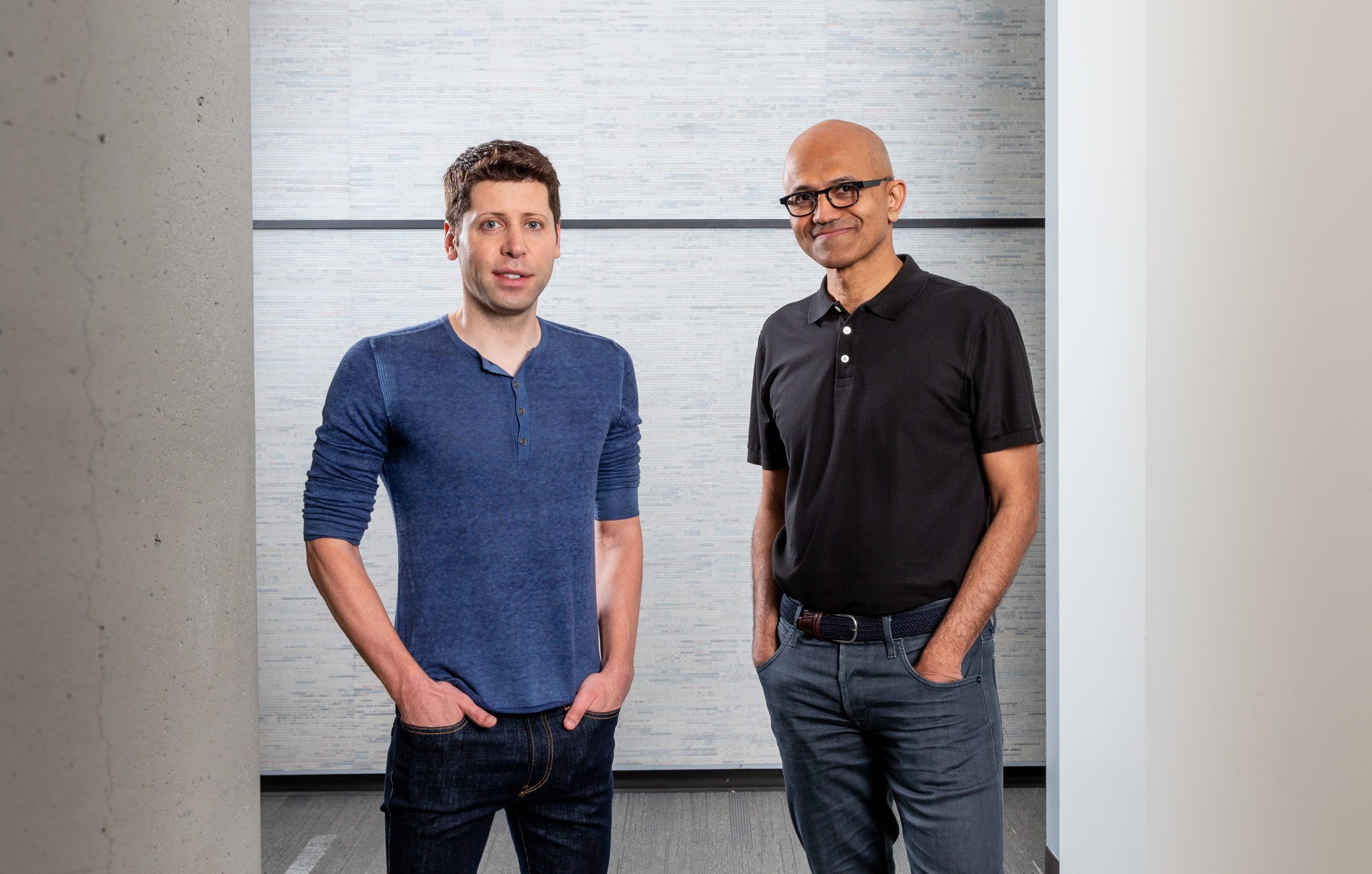
The monumental $32 billion acquisition of cloud security firm Wiz by tech titan Google has taken a significant stride closer to its finalization. Assaf Rappaport, the chief executive officer of Wiz, announced at a recent Wall Street Journal event that the deal successfully cleared its rigorous antitrust review by the U.S. Department of Justice. This critical regulatory endorsement marks a pivotal moment for both companies, although Rappaport underscored that the transaction still requires further steps before it can officially close, a process that often involves various administrative and legal formalities.
The Genesis of Wiz: A Rapid Ascent
Wiz’s journey from a nascent startup to a cybersecurity powerhouse, commanding a $32 billion acquisition price, is a testament to its disruptive technology and the burgeoning demand for robust cloud security solutions. Founded in 2020 by Assaf Rappaport, Ami Luttwak, Yinon Costica, and Roy Reznik – a quartet of Israeli cybersecurity veterans who previously founded Adallom (acquired by Microsoft) and held senior positions at Microsoft’s Cloud Security Group – Wiz quickly established itself as a leader in the cloud-native application protection platform (CNAPP) space.
The company’s core offering focuses on providing a unified security platform that helps organizations identify and eliminate risks across their entire cloud infrastructure, including Amazon Web Services (AWS), Microsoft Azure, Google Cloud Platform (GCP), and others. Unlike traditional security tools that often create siloed views, Wiz’s agentless approach offers comprehensive visibility into cloud environments, detecting misconfigurations, vulnerabilities, network issues, and identity risks in real-time. This capability became increasingly vital as enterprises rapidly migrated their operations to the cloud, creating complex and often vulnerable digital landscapes. Within two years of its inception, Wiz achieved unicorn status, surpassing a $1 billion valuation, and continued to attract significant investment, underscoring its rapid market penetration and technological prowess. Its success story is emblematic of the vibrant Israeli cybersecurity ecosystem, known globally for producing innovative and impactful security technologies.
Google’s Strategic Imperative in Cloud Security
For Google, the acquisition of Wiz represents a profound strategic move, particularly for its Google Cloud division. While Google Cloud has made significant inroads into the enterprise market, it continues to trail behind industry leaders Amazon Web Services and Microsoft Azure in terms of market share. A key differentiator and competitive battleground in the cloud wars is security. As organizations increasingly depend on cloud infrastructure for critical business operations, the assurance of ironclad security becomes paramount.
Google Cloud already offers a suite of security products, but integrating Wiz’s cutting-edge CNAPP capabilities would provide a comprehensive, industry-leading security posture that is designed specifically for multi-cloud and hybrid environments. This move positions Google to attract larger enterprises that demand sophisticated, consolidated security solutions to manage their complex digital estates. The acquisition signals Google’s intent to not only compete but to lead in specific, high-value segments of the cloud market. By embedding Wiz’s technology, Google Cloud can offer a more compelling value proposition, alleviating customer concerns about data breaches, compliance, and the intricacies of securing diverse cloud workloads. It is an investment not just in technology, but in bolstering trust and expanding its footprint within the lucrative enterprise cloud sector.
The Negotiation Saga: From $23 Billion to $32 Billion
The path to the $32 billion agreement was not straightforward, illustrating Wiz’s strong negotiating position and the intense competition for top-tier cybersecurity assets. Google initially approached Wiz in 2024 with a substantial offer of $23 billion. However, Wiz’s leadership, particularly CEO Assaf Rappaport, harbored a conviction that the company’s intrinsic value and growth potential were far greater. Rappaport publicly articulated his belief at the time that Wiz was poised for significantly more growth, indicating a bold confidence in the startup’s trajectory and market demand.
This decision to walk away from a multi-billion-dollar offer showcased an astute understanding of their market position and a willingness to bet on their own success. Their foresight proved accurate. After a period of independent growth and further market validation, acquisition discussions between Google and Wiz were revived in the initial months of 2025. These renewed talks culminated in March 2025 with Google’s public announcement of its intent to acquire Wiz for an unprecedented $32 billion. This revised figure not only validated Rappaport’s earlier assessment but also set a new benchmark for cybersecurity valuations, highlighting the premium placed on companies that can effectively address the escalating complexities of cloud security. The substantial increase in valuation over a relatively short period underscores the rapid evolution of the cybersecurity landscape and the strategic imperative for major tech players to acquire best-of-breed solutions.
Navigating the Regulatory Landscape
Large-scale technology acquisitions, especially involving market leaders, are increasingly scrutinized by antitrust authorities globally. In June 2025, reports from Bloomberg confirmed that the Google-Wiz deal was indeed under review by antitrust regulators. The U.S. Department of Justice (DOJ), along with the Federal Trade Commission (FTC), is tasked with ensuring that mergers and acquisitions do not unduly stifle competition, harm consumers, or create monopolies. For a deal of this magnitude, the review process is typically comprehensive, examining various aspects such of the market, including potential overlaps in product offerings, the competitive landscape post-merger, and any potential impact on innovation or consumer choice.
The DOJ’s approval signifies that, after a thorough investigation, the agency determined that the acquisition would not lead to significant anti-competitive concerns in the cloud security market. This clearance is a crucial hurdle overcome, particularly in an era where major tech companies face heightened regulatory oversight regarding their expansion strategies. The scrutiny reflects a broader global trend of governments attempting to curb the power of tech giants and ensure fair market practices. While the DOJ’s green light is a major step, international regulatory approvals or further administrative steps could still be pending, contributing to the deal’s anticipated closure in early 2026. The complexity and duration of these reviews have become standard features of large technology mergers.
Market Implications: Shifting Tides in Cloud Security
The $32 billion acquisition of Wiz by Google sends ripples throughout the cybersecurity and cloud computing industries. For the cloud security market, it represents a significant consolidation event. Wiz’s integration into Google Cloud will intensify competition with established players like Palo Alto Networks, CrowdStrike, and Zscaler, all of whom offer various cloud security solutions. The combination of Google’s vast resources and infrastructure with Wiz’s specialized, high-growth technology could accelerate the development of more sophisticated, integrated security platforms. This could potentially drive other major cloud providers like AWS and Azure to either acquire similar capabilities or ramp up their internal development efforts to avoid falling behind.
Beyond direct competitors, the acquisition also impacts the ecosystem of smaller cybersecurity startups. While it demonstrates the immense valuation potential for innovative companies in critical sectors, it might also spark a wave of further M&A activity as larger players seek to replicate Google’s strategic move. The deal could also influence investment trends, directing more venture capital towards cloud-native security solutions that address multi-cloud environments. From a broader tech perspective, the valuation itself highlights the growing importance of cybersecurity as a core component of digital transformation, moving beyond a mere compliance necessity to a fundamental business enabler. The cultural impact on Wiz, a relatively young, agile company, integrating into a behemoth like Google, will be a critical watch point for industry observers, particularly concerning talent retention and innovation velocity.
Integration Challenges and Opportunities
While the regulatory approval clears a major path, the true success of this acquisition will hinge on the effective integration of Wiz into Google Cloud. Integrating a fast-moving, innovative startup with a distinct culture into a large, established corporation like Google presents both significant challenges and immense opportunities. Key challenges will include merging technological stacks, harmonizing sales and marketing strategies, and retaining Wiz’s highly skilled engineering and product teams. Maintaining the entrepreneurial spirit and agility that propelled Wiz to its current success while leveraging Google’s global scale and resources will be a delicate balancing act.
However, the opportunities are equally vast. Google Cloud gains immediate access to a proven, market-leading CNAPP platform, significantly enhancing its security offerings. This integration allows Google to provide a more holistic security solution to its enterprise customers, encompassing everything from infrastructure security to application-level protection. The combined entity can drive deeper innovations in AI-powered threat detection, automated compliance, and proactive risk management across hybrid and multi-cloud environments. The synergy could establish Google Cloud as a dominant force in enterprise cloud security, attracting more customers who prioritize comprehensive and integrated security frameworks. Ultimately, this acquisition is not merely about adding a product; it’s about strategically positioning Google Cloud for future growth in an increasingly security-conscious digital world.
The Future of Cloud Security and Tech M&A
The anticipated closure of the Google-Wiz deal in early 2026 will undoubtedly mark a new chapter in the ongoing evolution of cloud security and the broader landscape of technology mergers and acquisitions. This transaction underscores a clear trend: cybersecurity is no longer an optional add-on but a foundational requirement for any enterprise operating in the cloud. The premium paid for Wiz reflects the urgency and strategic value placed on robust, integrated security solutions that can adapt to the dynamic threats of the digital age.
This deal also sets a precedent for future M&A activity in the tech sector, particularly for companies that can demonstrate significant innovation and market traction in critical areas like cloud infrastructure, artificial intelligence, and cybersecurity. The heightened regulatory scrutiny, as evidenced by the DOJ review, is also a reminder that while innovation is encouraged, market concentration will continue to be a significant concern for governments worldwide. As the digital economy expands, the intersection of technological advancement, market competition, and regulatory oversight will define the trajectory of major tech companies and the industries they shape. The Google-Wiz acquisition stands as a monumental indicator of these converging forces.






